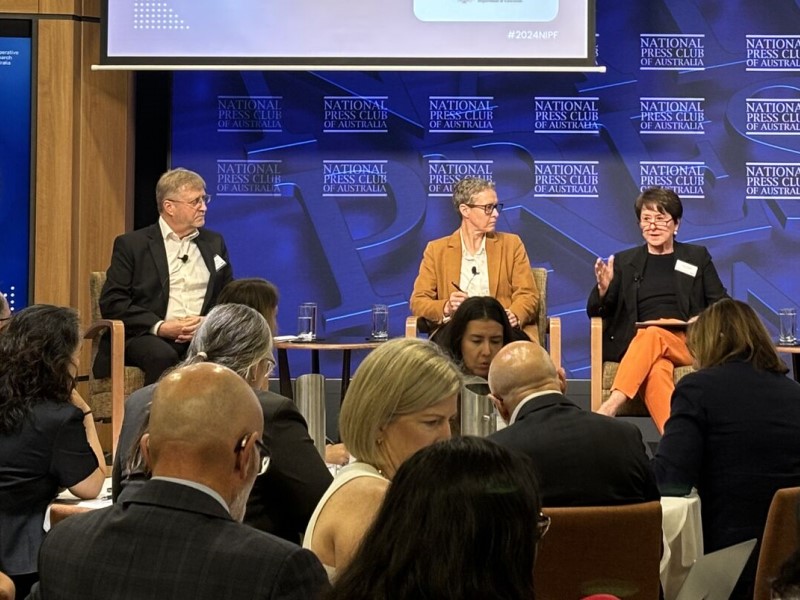Government procurement policies are being underutilised as an innovation lever, according to experts, who warn Australia’s main program lacks scale and buying rules still aren’t optimised for industry growth.
At the National Innovation Policy Forum convened by the representative group for Cooperative Research Centres on Monday, experts from government and industry said modest tweaks could deliver big changes.
Cicada Innovations chief executive Sally-Ann Williams said government procurement can “stimulate innovation in areas where private sector demand is uncertain or insufficient” and act as a launchpad for smaller suppliers.

Ms Williams said the Business Research and Innovation Initiative (BRII) – a federal program for small to medium-sized businesses (SME) to develop new-to-market technologies that solve government challenges – enables government procurement to target national priorities like healthcare, clean energy, and defence while building industry.
The program provides up to $100,000 to businesses to demonstrate technical and commercial feasibility, with successful grantees then able to apply for an up to $1 million proof of concept grant. Eventually the government considers procuring the solution.
Although it has had bipartisan support, the program has not been optimised to be as successful as the United States version it is modelled after, the Small Business Innovation Research (SBIR) program, according to Ms Williams.
“What [the SBIR] does that we don’t do is it mandates that government agencies that have over $100 million of spend on research and development spend a set percentage of their budget on this program – 3.2 per cent in fact,” she said.
“And what that does is it forces them to actually think about problems that they have in their agency and where there are small businesses that employ under 500 people in America… actually seeks solutions with them and helps de-risk that with a process to procurement.”
She said there were 11 participating US federal government agencies spending more than US$4 billion annually in this program. Previous SBIR grant recipients include the likes of Qualcomm, SpaceX, and Ginkgo Bioworks.
CSIRO executive director Professor Elanor Huntington told the same event that government has a role in both policy interventions and as a customer with “specialist demands”.
Professor Huntington said the national science agency’s 15-year long procurement relationship with Canberra Data Centres has helped enable the firm to grow from its startup phase. The company now claims to be the largest data centre service provider to the federal government.
The CSIRO set challenging technical asks for the local supplier early on that it delivered to the science agency and subsequently larger customers.
TechnologyOne’s general manager for corporate affairs and government David Forman warned that the Commonwealth Procurement Rules (CPR) do not adequately define the value of developing Australian intellectual property.
He said the current rules require procurement officers to “value a commercial offer that leads to the licensing to Australia of overseas intellectual property” but not necessarily genuine local innovation.
“That’s great, but it was silent on valuing domestically created and owned intellectual property,” Mr Forman said.
He said TechnologyOne has been successful at winning Australian government contracts, but the current CPRs actually incentivise the Australian company to domicile overseas.
A US move would put the software company in a better position to sell to the US government, he said, while retaining the opportunities and advantages of selling to the Australian government.
Digital Health Cooperative Research Centre chief executive Annette Schmiede said only about 11 per cent of Australian government contracts went to local SMEs in 2022-23.
It is “out of step with global best practice”, Ms Scmiede said, and reflects a “big disconnect between policy and practice”.
Do you know more? Contact James Riley via Email.

